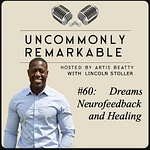“The barrier to our future is often the very plans that we’ve created to get there.”
—Craig D. Lounsbrough, counselor, minister, and coach.
You will stop sabotaging yourself when you stop asking the same questions. This opens a door to a slew of related behaviors, none of which are simple. By considering these related behaviors we can clarify why self-sabotage is both hard to see and hard to stop.
It is tempting to see self-sabotage as a desire to be self-destructive, but that is facile and incorrect. Few people intend to destroy themselves even when their actions appear to cause them harm. Despite having a destructive effect, almost all of our actions are intended to improve our condition.
I must say “almost” because the logic of some actions is so lacking that it’s pathological. But even pathological people think there is going to be a benefit to actions that, when seen logically, have an overwhelming chance of causing harm.
Whether or not you’re thinking straight and your reasons are logical, you act to gain something. If you need something, you try to obtain it. If you feel unworthy, you act to redeem yourself. If you’re frightened, you protect yourself. Despite sabotaging yourself in every other way, you may still feel relieved, redeemed, or rewarded.
If your actions appear self-destructive when viewed from outside we’ll call it self-sabotage but, to you, your actions may have some positive result. This highlights another aspect of self-sabotage, which is that people are famously bad at judging the outcome of uncertain events.
Understanding Is Valuable, Awareness Is Critical
People are terrible at understanding complexity, and the more complexity we’re involved with, the greater the danger we’ll fail. This may be humanity’s greatest failing. It not only results in people’s endless losses in lotteries, but their poor intuitions, mistaken judgements, misplaced attention, and destructive actions. We use emotions to guide our decisions, and are poor masters of it.
This is partly a flaw in our ability to understand causes and weigh outcomes; these are logical skills. But our greater flaw lies in being oblivious to alternatives. We tend to be stubborn and narrow minded. We don’t see our ignorance and we are uncomfortable in exploring new ways of thinking.
On the whole, being stubborn and oblivious is a good strategy for humanity. It means all of our stupid and unsuccessful ideas will be thoroughly explored to the point where no one will follow these ideas again. Fighting pointless wars might, some day, convince people to stop fighting wars.
Surrender Leads to Success
Repeatedly trying a failed approach is an effective way to conclude that it will never succeed, but it is inefficient and, more importantly, it can go on for a long time. There are more ways to fail than there are to succeed, and they are easier to sell. It may be good to know that a million trials have all resulted in failure, but if your resources are limited, it’s a poor strategy.
Repeating failed strategies is usually the most attractive option. It allows you to blame one thing while retaining all your other wants, needs, thoughts, and feelings. It’s natural that if you’ve defined yourself and invested your resources in achieving something you cannot get, you’ll try another way to satisfy yourself that involves the least change and effort.
Repeating failed strategies cannot be done carelessly. Every failure should offer useful information. If many people’s resources are being used, then many people should be learning from each failure. All decision makers should be involved and informed. How often does this happen?
It could be that you’ll succeed if you just try hitting the problem from a slightly different angle, phrasing your demand in a different way, or making a small change to the situation. Thousands of people follow this brute force approach. But when you’re violent, belligerent, or avoidant the result will be self-sabotage, not success.
We live in a culture that celebrates brute force and simplistic thinking. Competitive sports endorses our fixation on a single goal. Compulsory education says the long out-of-date test is the only measure of success. We run businesses with short term thinking. We endorse gender stereotypes that create one-dimensional people. We elect Trumpian thinkers who sabotage national programs for personal gain.
Changing strategy can feel like surrender and defeat, but it’s more often a surrender to insight. There are some problems you will not solve, and you don’t want to waste resources for no gain. But there is much to be gained in appreciating the depth of an unsolvable problem, and there is much you can offer others when you understand unsolvable problems deeply.
How to create love in another person seems like an unsolvable problem, but it’s important to explore and whatever you discover will be of value. Understanding yourself is another unanswerable question, but all serious attempts yield valuable insights that can be used and taught.
Reasons Mean Nothing
Recognize these points. Reasoning is what you apply when you give a cause for something. Logic is what you apply when there is a cause and effect. Reason indicates you want something. Logic tells you what’s likely to succeed.
There is absolutely no connection between reason and logic. Just because someone tells you a reason, or you have a reason of your own, doesn’t mean these reasons are credible. Reasons need no basis. The only way to turn a reason into something logical is to test it or to refer to tests of it.
Stop self-sabotage. Schedule a free call on my calendar:
Listen to this episode with a 7-day free trial
Subscribe to Stream of Subconsciousness to listen to this post and get 7 days of free access to the full post archives.













